California has made millions in tax revenue from of the cannabis industry since legalization, with Los Angeles County alone reporting $371,962,634 in total taxable sales in 2022 alone, according to the California Department of Tax and Fee Administration.
After decades of the war on drugs, marijuana is still demonized and feared in Black, Indigenous and People of Color (BIPOC) communities. Latinos are warned about marijuana users, often referred to as marijuanos as children and are told by older relatives to stay away from cannabis and its users because of the generational trauma and cultural stigma that have plagued people of color, and cannabis, for years.
This cultural stigma in Latino communities has now become part of a barrier to accessing this rich new market today.
Los Angeles consumes a rich diet of cannabis cultivars and products, with advertising for a dispensary or delivery service at nearly every freeway exit. Consumers are offered huge selections of products at every price range, with more than 10,000 options under $25 available on Weedmaps locally. Other similar online services also advertise discounts, specials and patient appreciation days all across the region.
Jorge Nuño, CEO of Casa Grande, a Cannabis Social Enterprise and one of the few local Latino-owned brands on the market, says these tactics are shoving BIPOC brands out, and are only part of a bigger systemic issue that is a slippery slope for unprepared Latinos who are losing ownership fast to predatory investors who are quick to buy out ownership of those companies and maintain the outward appearance of a BIPOC brand.
Susie Plascencia is the co-founder of MOTA Glass, and a leader in the Los Angeles BIPOC cannabis industry. She has worked with Nuño and sells products on Casa Grande’s website.
Plascencia said she was brought on by Humo as a partner to build up their cannabis brand, and then her contract was abruptly terminated.

Jorge Nuño sits outside of the Big House in the back yard, where he plans on extending his project and building a guest house and additional room for events. Photo courtesy of Abraham Navarro.
Humo, is whose website currently features Latino models with strains like Horchata and Mazapan, is part of a larger project called Posibl, which is essentially a large-scale grow operation in Salinas that supplies many businesses with cannabis flower. “I feel that with the brand having reached significant status and acclaim in the industry,” Plasencia said. “My former business partner felt I was no longer needed.”
Big cannabis companies are happy to use Latinos to sell to Latinos, and this results in Latinos being represented as growers, consumers and retailers but not as owners or shareholders. Nuño says that BIPOC cannabis licensee applicants and operators deserve more protection and money with less red tape from the government. “It’s alarming,” Nuño said. “I don’t want to discourage people from entering this, but it’s not designed for us to succeed the way things are now.”
Nuño believes that the Latino community needs to rally together in order to ensure that BIPOC entrepreneurs stay in business. Nuño is using Casa Grande and his position as an established licensee to try and get more of the Latino community involved and invested. He is working on a community investment fund to fuel his community project and a certified BIPOC initiative to try and generate more sales for BIPOC brands on the shelves.
CALÓ NEWS interviewed Jorge Nuño about the current state of the cannabis industry for Latinos and the greater BIPOC community in Los Angeles.
Responses have been edited for brevity and clarity.
JORGE NUÑO, 46, LOS ANGELES, CEO OF CASA GRANDE, HE/HIM, LATINO

Jorge Nuño, CEO of Casa Grande cannabis sits outside of the Big House, a small business incubator he is building in a 10 room mansion in South Central, Los Angeles. Photo courtesy of Abraham Navarro.
HOW DID YOU GET STARTED IN THE CANNABIS INDUSTRY? WHAT CAN YOU CONTRIBUTE TO YOUR ACHIEVEMENTS WITH CASA GRANDE?
I got into the cannabis industry because of my sister. She was one of the first Latinas licensees when the initiative came out in 2018. She reached out and told me, “Hey Jorge, you need to get involved because nobody is reaching out to the Latino community about the cannabis industry. We’re not getting any dibs on these licenses.” When another set of licenses rolled out, my sister told me I should go for it because I qualified as a social equity applicant. Social equity in Los Angeles means that you are an individual who was impacted by the war on drugs, so they identified zip codes in Los Angeles that were impacted, so if you were incarcerated before or if you lived in these impacted areas over ten years, or if you’re low income, [you qualify].
I fell into the zipcode, and I lived here longer than ten years so that qualified me as a social equity [applicant] in the early stages of the application process. Before I applied, I was helping people get certified as social equity applicants, so we did a lot of organizing and advocating for the cannabis industry before I applied. As I got involved in the community, I started to understand some of the issues we were facing with the rollout of the cannabis licenses in Los Angeles.
I had some insights and I was in a position to apply, and the building that I have my print shop qualified for licensing cannabis. I was able to navigate myself through it all, having dealt with the city and a building that qualifies where I can park my license, but that’s my own privilege. I can’t imagine anyone else having to deal with all that stuff.
WHAT FRUSTRATES YOU ABOUT THE CURRENT STATE OF THE CANNABIS INDUSTRY?
As an operator, I know that of what’s on those shelves being sold to us, less than 2% are owned by people of color, so we’re getting pushed out! And it’s systematic. Traditional banking isn’t available, so you are at the mercy of whoever holds the most capital. I see these challenges in my community. People tell me that they have to sell out their shares of their company and these other folks are happy to take that control. We have enough data to quantify the harm and the generational wealth they destroyed for us to build wealth in our community. Now that we have cannabis legalized, we’re having barriers to entry and people are losing their personal wealth [based on] the illusion that they might be successful. And if you don’t understand system changes, you’ll think it’s your fault, or that you’re not working hard enough. But no … the system is designed for you not to succeed. All these corporations in the game right now have budgeted to lose money to stay in the game until things settle, but we don’t have the luxury to burn a few million dollars just to stay relevant.
And these corporations are gobbling up the sales strategies by providing promos and spending money to give half-priced discounts. That’s money that they’re putting into suppressing our sales.
The industry doesn’t care that there are no BIPOC owners. They’ll end up giving us a scholarship from their community benefits agreement, but ownership? Yeah right.
We’re getting bullied out and we need to talk about this openly.
WHAT NEEDS TO CHANGE TO ALLOW FOR LATINOS TO THRIVE IN THE INDUSTRY?
We have to bake in some real policy changes for inclusion, to protect and support BIPOC operators and brands in the cannabis industry, help us get licenses, give financial support, or even waive fees! If you are 51% or more BIPOC ownership, you should not get taxed, that’s equity right there. We definitely need more capital. I mean, 40, 50 years of the war on drugs and now we’re in a position where we can’t get access because laws aren’t in place, right? So when all this smoke goes away, we’re not going to exist in the industry if we don’t do something about it now- locally, statewide and eventually nationally. All these other states that are coming on board with legalization are all going to see the same things happen. We’re here already, five years in.
WHAT DANGERS ARE THERE FOR LATINOS TRYING TO GET STARTED IN CANNABIS?
Before we get the license and after you get the license, there are two different challenges. Let’s say you get your license, and you’ve exhausted all your money just to get the license. It took me 22 months to get my license. Imagine having to wait two years and spending all your money on something that isn’t even making you money. And now you have to do the real work … you have operational costs, you need financing and that’s not available, so what do you do? You reach out to some rich person or investor, and what’s happening now is people are getting fatigued, getting tired and selling their licenses out to whoever is offering the most money, which are corporations, multi-state operators or dispensary networks.
As a community, we’re not organized to get investments, so we get caught up in really bad deals.
What’s happening now is you have all these dispensaries that are not owned by BIPOC, they might be owned by white folks, servicing majority BIPOC communities. At this point, the customer doesn’t know. They have cool graphics that look relevant to that neighborhood, they might have budtenders and security guards that look like us, but who owns that? It’s not us. Some of these cannabis companies preach community, but it’s all a facade to win our communities over. But who’s making the money? It’s not people of color.
WHAT COULD THE CITY HAVE DONE RIGHT TO SUPPORT BIPOC IN CANNABIS?
The city could have put a plan together, funded it and rolled out the social equity applicants and empowered them with seed money, technical assistance and legal assistance. Some of these social equity people are not business people. Only because they qualify doesn’t mean they’re ready for a business. A few might have the hustle in them, but it still requires a lot of education on how to open an LLC, how to structure deals and contracts and how to run a business.
There have to be more guardrails for social equity applicants, with real dollars behind them. It’s not cheap to open a cannabis dispensary. $1.5 Million out the door. How many of us have that much?
Imagine a white brand and a BIPOC brand with the same amount of marketing dollars … who do you think has the better chance of being successful in selling to their communities? The BIPOC brand. The only problem is that we don’t have the same amount of money, so they win the narrative. The goal between now and when things settle seems to only be to keep big corporations and multi-state operators in the market and then they’re the only options.
For us to try to get in afterward, it’s not going to happen.
HOW CAN CONSUMERS MAKE A DIFFERENCE IN HOW WE BUY CANNABIS PRODUCTS?
When our certified BIPOC program rolls out in a few months, look out for our section in every dispensary that’s called “The Roots.” Go in there and support those brands. Talk about them, because they aren’t talking about us. Right now it’s whatever the budtender wants to sell you.
WHERE IS THE ROUTE TO SUCCESS FOR LATINOS IN THE CANNABIS INDUSTRY?
We need to put policy in place with some teeth in it. Unapologetic.
We need to create an ecosystem where it’s very intentional for the industry to support the BIPOC brands, and get our sales out the door … talking to the managers and budtenders and telling them to sell and promote BIPOC-owned brands. Through this journey, and really, my frustration in understanding what I’m getting myself into, I decided to make a certified BIPOC program, where we certify all the brands that are more than 51% owned by BIPOC. The second level to that is creating a space in every dispensary that is dedicated to BIPOC. We’re going to call it “The Roots.”
Part of that program is to not only bring us all together in the store, like this is where the party’s at, but it’s also to educate the consumer that they can go to their local store and support BIPOC brands.
We need collaboration with these dispensaries to support our brands in their stores. If you really want to be an ally, sell us out! Be intentional about pushing all the BIPOCS out the door. That would save us. If we just had 5% of, say, STIIIZY’s sales to support BIPOC, we’re in the game.
The biggest asset I have is my culture and my community. Because that’s what they use to sell to us. They want our dollars and they have to use our stories to obtain those dollars. We forget the value that we have as people and communities and we have to stop waiting around for their commission. In order for us to succeed we have to work together. The market they want is ours, and outside those stores, the market is Black and Brown. We are the market and we set the trends and we are the root of all this!

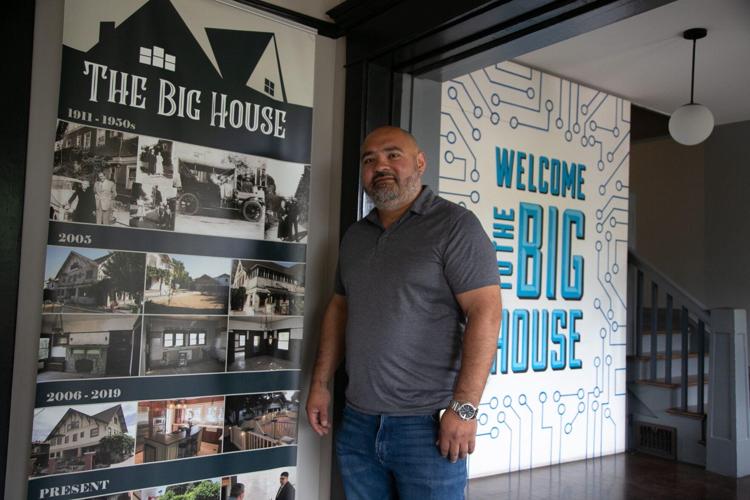
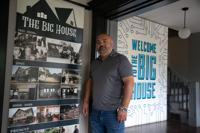
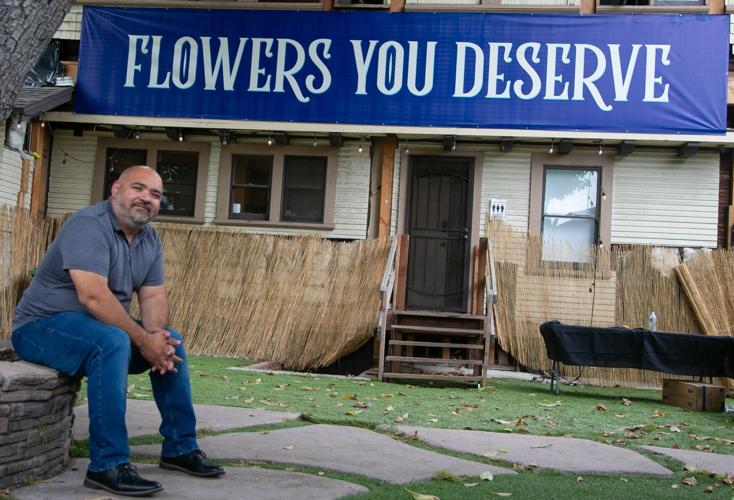

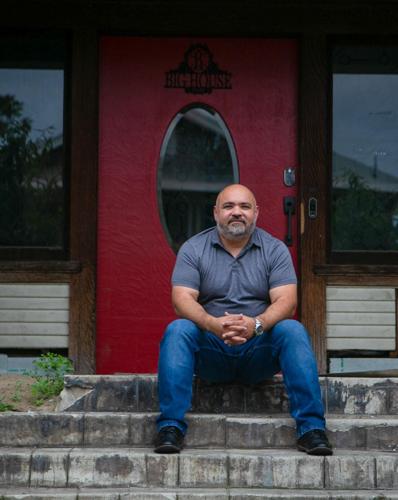
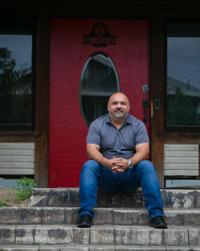
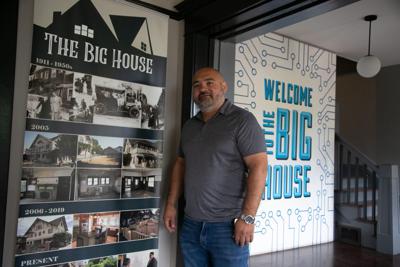























(0) comments
Welcome to the discussion.
Log In
Keep it Clean. Please avoid obscene, vulgar, lewd, racist or sexually-oriented language.
PLEASE TURN OFF YOUR CAPS LOCK.
Don't Threaten. Threats of harming another person will not be tolerated.
Be Truthful. Don't knowingly lie about anyone or anything.
Be Nice. No racism, sexism or any sort of -ism that is degrading to another person.
Be Proactive. Use the 'Report' link on each comment to let us know of abusive posts.
Share with Us. We'd love to hear eyewitness accounts, the history behind an article.